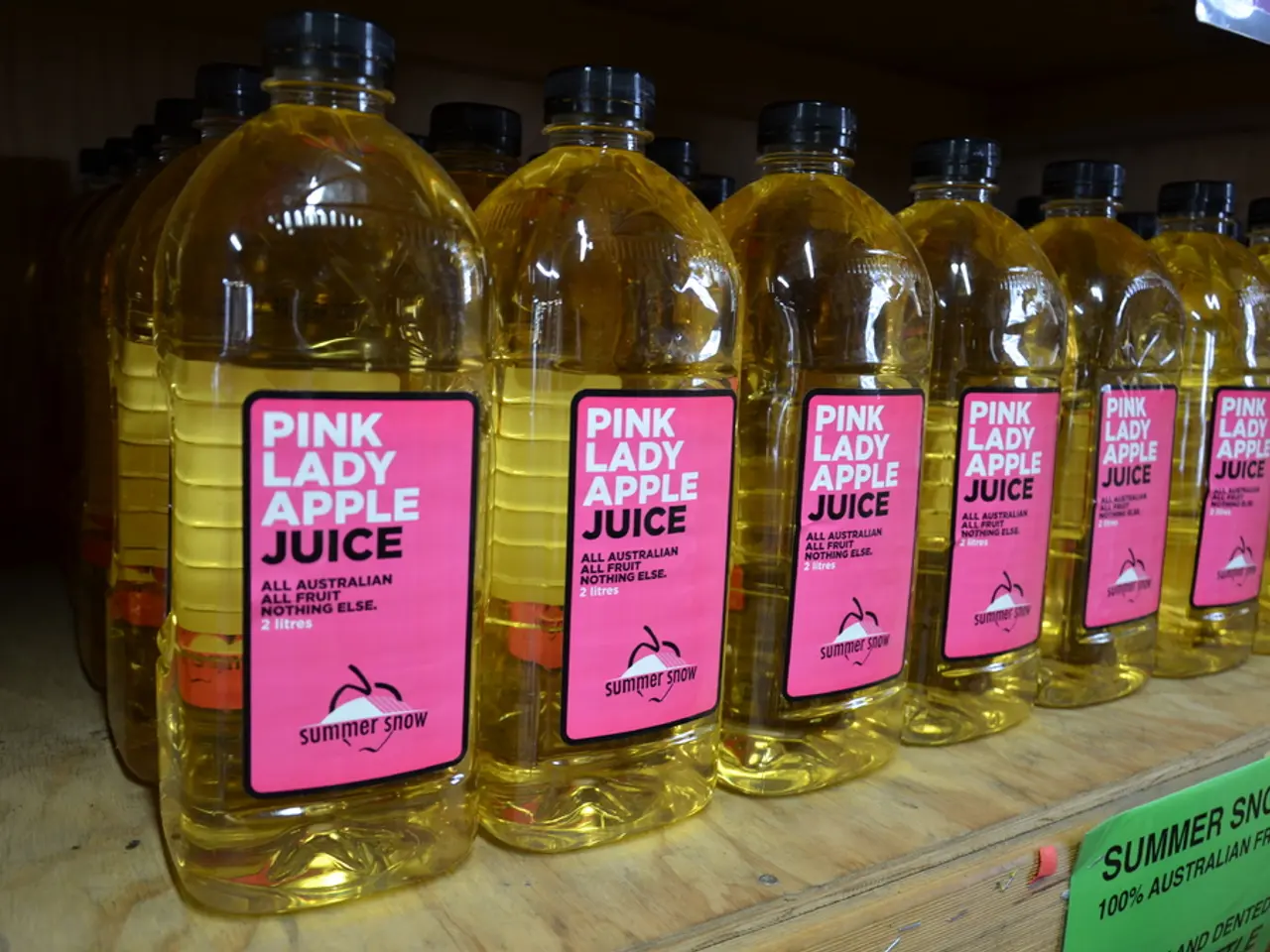Consuming pickle juice: Exploration of nutritional aspects, benefits, and potential drawbacks
In the realm of home remedies and unconventional health boosters, pickle juice has gained a notable reputation. This tangy, salty liquid, often associated with the traditional cucumber pickle, is increasingly being recognised for its potential health benefits.
Pickling cucumbers requires three primary ingredients: cucumbers, salt, and water. Lactobacillus bacteria, which naturally cover the vegetable's skin, can ferment the cucumber, leading to pickling. However, commercial manufacturers often remove these beneficial probiotic bacteria during processing and replace them with vinegar.
One of the most touted benefits of pickle juice is its ability to aid in hydration and muscle cramp relief. Rich in essential electrolytes such as sodium and potassium, pickle juice could potentially replenish those lost through sweat, reducing the risk of dehydration and muscle cramps. Some athletes even use pickle juice for this purpose, although the exact mechanism is still a subject of debate.
Another intriguing aspect of pickle juice is its potential probiotic content. Unpasteurised, fermented pickle juice may contain live probiotics, which can support gut health. However, it's important to note that the research on this is still limited.
Despite these potential benefits, pickle juice is not without its drawbacks. Its high sodium content can lead to high sodium intake, which may be problematic for individuals with certain health conditions such as hypertension or kidney disease. Moreover, some people may experience stomach discomfort or digestive issues due to the acidity and high salt content of pickle juice.
It's also crucial to remember that most of the benefits attributed to pickle juice are based on anecdotal evidence or small studies, and more research is needed to confirm its effectiveness for various health issues. Therefore, it's advisable to consume pickle juice in moderation and to consult a healthcare provider before doing so, especially if you have a health condition or are taking medication.
In conclusion, while pickle juice may offer some potential health benefits, particularly for hydration and muscle cramps, it should be consumed in moderation due to its high sodium content and potential side effects. It's an intriguing subject, and as research continues, we may uncover more about this tangy, salty liquid's potential health benefits and applications.
- Some research suggests that pickle juice could potentially help manage colitis, a type of inflammatory bowel disease, due to its probiotic content.
- The electrolytes in pickle juice might aid in the management of other nutritional deficiencies, such as those found in people with atopic disease or multiple sclerosis.
- Pickle juice might exhibit a predictive role in preventing certain diseases like cancer and type 2 diabetes, given the potential benefits from its probiotic content and antioxidant properties.
- Breastfeeding mothers have been known to consume pickle juice as a source of electrolytes, assisting in maintaining their nutritional balance during this critical period.
- In fitness-and-exercise routines, pickle juice can serve as a quick energy booster, helping athletes to cope with dehydration, muscle cramps, and even migraines.
- Individuals suffering from bipolar disorder can benefit from the health-and-wellness regimen that includes pickle juice, as its probiotics and electrolytes might contribute to overall mental health improvement.
- Beyond muscle cramps, pickle juice may help in reducing the symptoms of ulcerative colitis, Crohn's disease, and even ankylosing spondylitis due to its anti-inflammatory effects.
- Pickle juice could potentially aid in managing asthma, as its probiotics might help to reduce inflammation in the respiratory system, alleviating symptoms like coughing and shortness of breath.
- Obesity and diabetes are key concerns in modern society, and some studies suggest that pickle juice, consumed as part of a balanced diet, may aid in weight loss and blood sugar regulation.
- In creative culinary applications, pickle juice can be used to prepare salads, marinades, and even popsicles as part of a well-rounded nutrition plan.
- Consuming pickle juice may help in managing dermatitis, eczema, and psoriasis due to its anti-inflammatory properties, making it a potentially valuable component of a health-and-wellness regimen.
- The probiotics present in pickle juice could potentially help combat HIV and other viral infections by boosting the immune system.
- Certain chronic conditions like COPD and depression could potentially be alleviated by the regular consumption of pickle juice, given its probiotic content and electrolyte benefits.
- People who are following a fitness-and-exercise routine and watch their mental-health can use pickle juice as part of a broader health strategy, incorporating it into their meals for added health benefits.
- Science continues to unravel the mysteries surrounding pickle juice and its potential health benefits for various conditions, from hydration and muscle cramps to inflammatory diseases, diabetes, mental health, and more.




